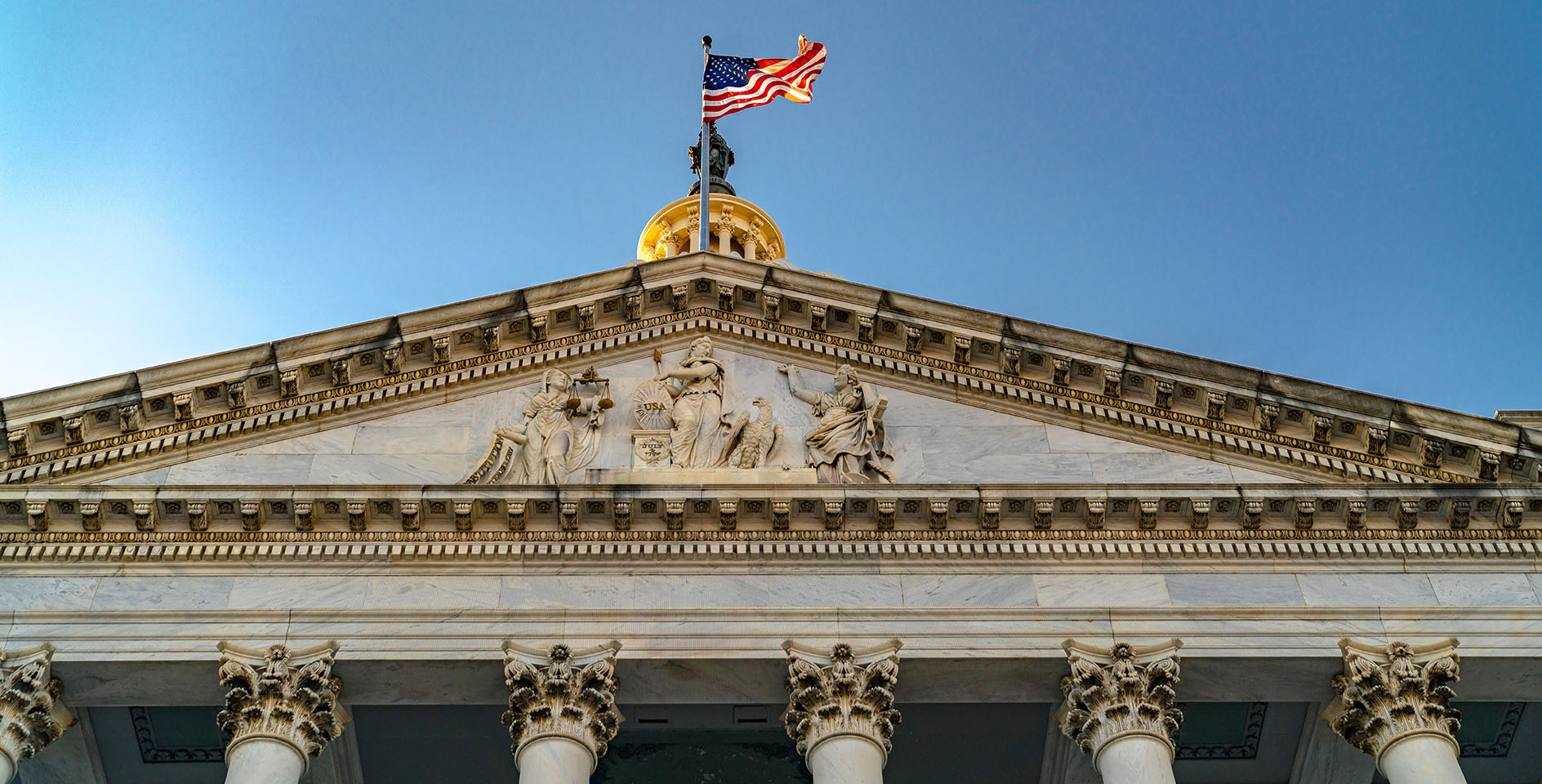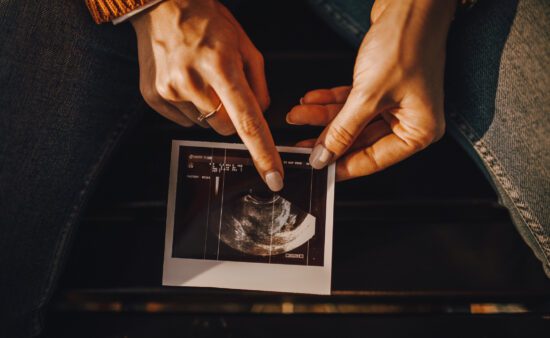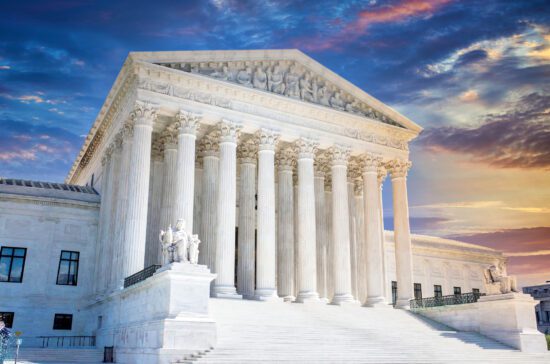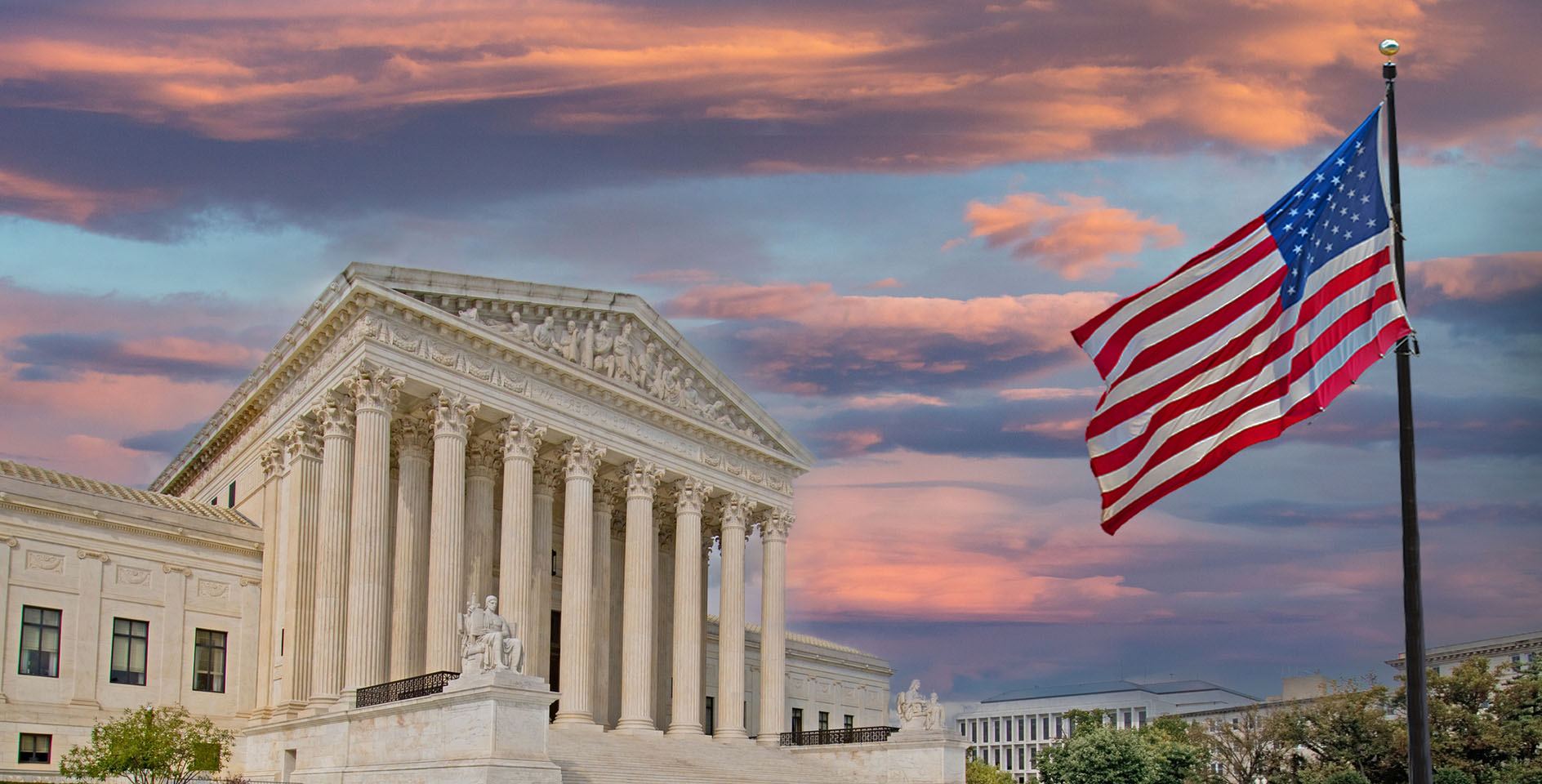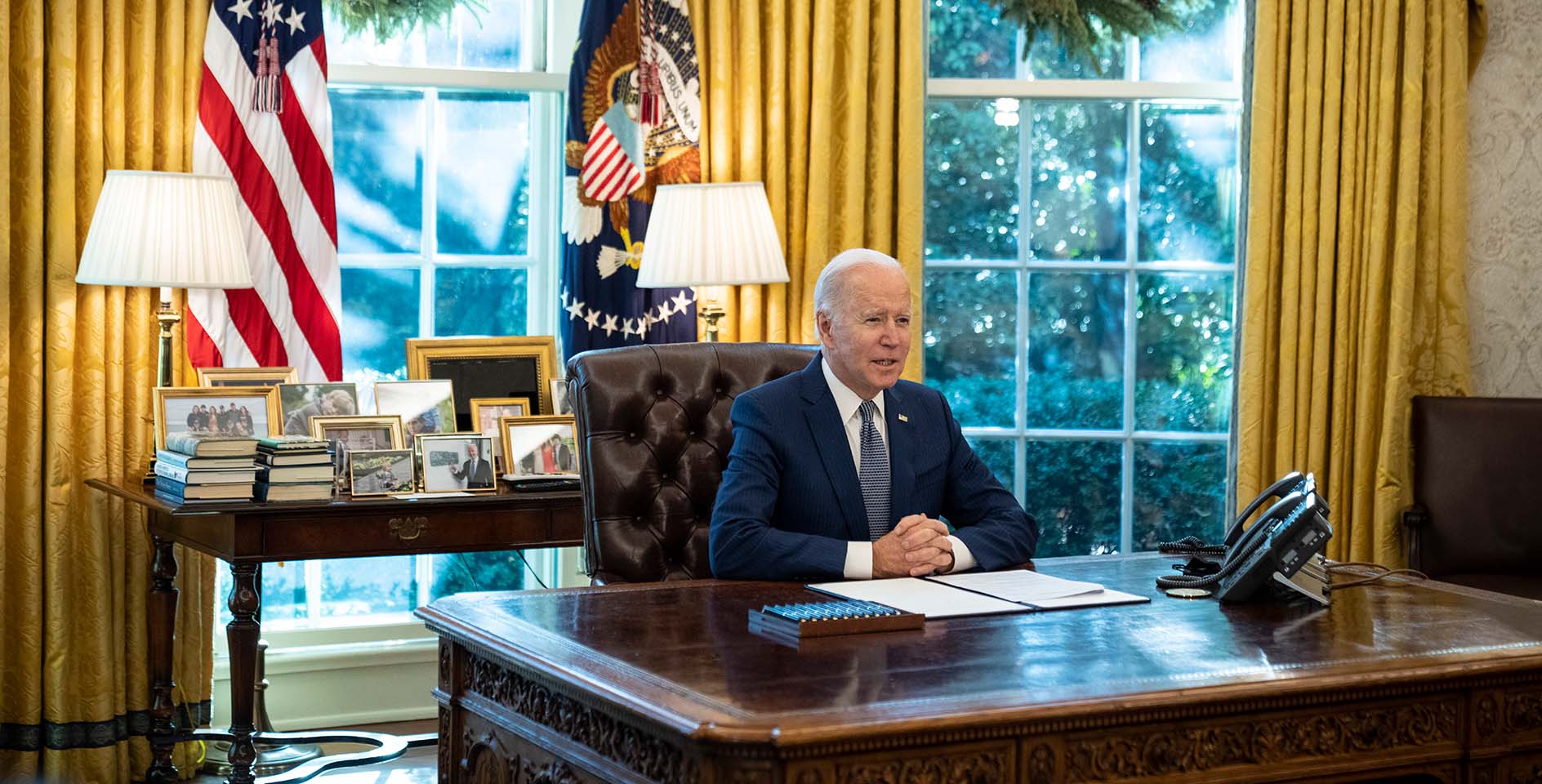Today, in a 6-3 vote, the U.S. Supreme Court blocked the Biden administration’s COVID-19 Vaccination and Testing Emergency Temporary Standard (ETS), issued through the Occupational Safety and Health Administration (OSHA). On Jan. 7, the Supreme Court heard oral arguments for emergency requests challenging the Biden administration’s vaccine mandates. Justices Breyer, Sotomayor, and Kagan dissented in this opinion.
What was the OSHA mandate?
The stated purpose of the OSHA mandate was “to protect unvaccinated employees of large employers (100 or more employees) from the risk of contracting COVID-19 by strongly encouraging vaccination.” The intent to issue this rule was announced in September by President Biden, but the text of the rule was issued in November.
The rule states that “covered employers must develop, implement, and enforce a mandatory COVID-19 vaccination policy, with an exception for employers that instead adopt a policy requiring employees to either get vaccinated or elect to undergo regular COVID-19 testing and wear a face covering at work in lieu of vaccination.”
In short, the rule required employers with 100 or more employees to submit their employees to weekly COVID-19 testing and masking requirements, or the employees could opt to receive one of the three vaccines that are approved or authorized for the prevention of COVID-19 in the U.S.: Pfizer, Moderna, or Johnson & Johnson.
The OSHA rule would have affected approximately 84 million private-sector workers across the country, including some 31 million who are believed to be unvaccinated.
In the opinion released today, the majority on the court noted, “OSHA has never before imposed such a mandate. Nor has Congress.” In fact, Congress declined to enact any measure similar to the OSHA mandate. They also noted that “(p)rior to the emergence of COVID–19, the Secretary had used this power just nine times before (and never to issue a rule as broad as this one). Of those nine emergency rules, six were challenged in court, and only one of those was upheld in full.”
What did SCOTUS say today?
The majority writes, “Permitting OSHA to regulate the hazards of daily life––simply because most Americans have jobs and face those same risks while on the clock––would significantly expand OSHA’s regulatory authority without clear congressional authorization.”
They go on to state, “It is telling that OSHA, in its half century of existence, has never before adopted a broad public health regulation of this kind—addressing a threat that is untethered, in any causal sense, from the workplace. This ‘lack of historical precedent,’ coupled with the breadth of authority that the Secretary now claims, is a ‘telling indication’ that the mandate extends beyond the agency’s legitimate reach.”
Justices Gorsuch, Thomas, and Alito clearly spelled out the heart of the issue in their concurring opinion:
The central question we face today is: Who decides? No one doubts that the COVID–19 pandemic has posed challenges for every American. Or that our state, local, and national governments all have roles to play in combating the disease. The only question is whether an administrative agency in Washington, one charged with overseeing workplace safety, may mandate the vaccination or regular testing of 84 million people. Or whether, as 27 States before us submit, that work belongs to state and local governments across the country and the people’s elected representatives in Congress. This Court is not a public health authority. But it is charged with resolving disputes about which authorities possess the power to make the laws that govern us under the Constitution and the laws of the land.
Ultimately, the court ruled that OSHA does not have the authority to develop such a broad sweeping policy without Congress’ clear authorization.
What about healthcare workers?
In a separate decision released today, the court by a 5–4 vote, allowed the administration’s vaccine mandate for workers in most healthcare settings that receive Medicare or Medicaid reimbursement, including but not limited to hospitals, dialysis facilities, ambulatory surgical settings, and home health agencies. While the OSHA mandate allowed weekly testing for unvaccinated employees, the mandate for healthcare workers does not. Justices Thomas, Alito, Gorsuch, and Barrett dissented in this decision.
The court reasoned that “Congress has authorized the Secretary [of Health and Human Services] to impose conditions on the receipt of Medicaid and Medicare funds that ‘the Secretary finds necessary in the interest of the health and safety of individuals who are furnished services’” and that “the Secretary did not exceed his statutory authority in requiring that, in order to remain eligible for Medicare and Medicaid dollars, the facilities covered by the interim rule must ensure that their employees be vaccinated against COVID–19.”
The dissenting justices argued that the government did not sufficiently show that they have the statutory authority to issue the rule. Additionally, in Justice Alito’s dissent, it was maintained that this rule harmfully extends the Executive Branch’s authority and “will ripple through administrative agencies’ future decision making.”
How does this affect SBC entities?
On Nov. 5, the Southern Baptist Theological Seminary (SBTS) and Asbury Theological Seminary filed a petition with the U.S. Court of Appeals for the 6th Circuit to challenge the OSHA rule. Dr. Albert Mohler, president of SBTS, stated that “it is unacceptable for the government to force religious institutions to become coercive extensions of state power. We have no choice but to push back against this intrusion of the government into matters of conscience and religious conviction.”
According to the Alliance Defending Freedom,
. . . the lawsuit The Southern Baptist Theological Seminary v. Occupational Safety and Health Administration, alleges that the Biden administration lacks jurisdiction to dictate employment practices to religious institutions, lacks constitutional and statutory authority to issue the employer mandate, and that the mandate failed to meet the required procedural hurdles. In short, the federal government cannot coerce individuals nationwide to undergo medical treatment, and it lacks authority to conscript employers to compel that result.
The Southern Seminary lawsuit was consolidated with multiple other cases that made up the OSHA case that the Supreme Court heard on Jan. 7, with the Alliance Defending Freedom representing the groups.
Additionally, the Centers for Medicare & Medicaid Services (CMS) vaccine mandate affects faith-based organizations such as the Baptist Homes and Healthcare Ministries, Christian ministries that provide independent living and skilled nursing care to the aging and elderly.
How should Christians think about this?
The ERLC has emphatically stated since the beginning of this public health challenge that government officials should opt for providing guidance over mandates. Moreover, we have continually advised elected officials and local health experts to actively seek partnership opportunities with pastors and churches in order to serve local communities as this pandemic rages on.
Brent Leatherwood, ERLC’s acting president, remarked on today’s decisions:
As any student of American civics will tell you, every two years, we cast ballots to determine who should represent us in Congress –– the legislative arm of our federal government that is tasked with establishing policies of national interest. This is a simple rule of our constitutional system, and it is where the U.S. Supreme Court grounded today’s decision on the OSHA mandate. The court rightly decided the rule was far too broad and vast in its reach to be developed by an agency in the Executive Branch. The court did not deny more targeted regulations could be utilized in certain settings, which is why it allowed the CMS requirement to move forward in healthcare facilities. Though the goal of achieving a higher vaccination rate is proper and warranted, ultimately, a policy of this magnitude requires Congress to speak and, thus far, it has been silent.
During this ongoing pandemic, the ERLC will continue to represent the interests of Southern Baptist before the courts, Congress, and the administration.



